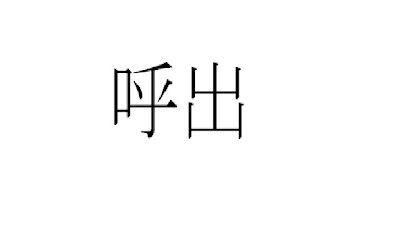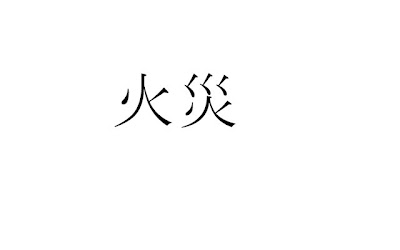One Saturday morning in Tokyo, I woke up, stepped into the shower and sleepily pushed the button that turned on the hot water heater.
Or so I thought.
Suddenly the bathroom erupted into chaos; sirens blared, an automated computer voice shouted instructions at me through the vent over the bathtub and I screamed in terror.
Apparently the button located near the hot water heater wasn’t outlined in pink because it symbolized ‘heat’, but rather, because it was the emergency call button. I’d just unwittingly notified the building’s doorman, receptionist and possibly even the police, that I was having a heart attack in the bathtub.
While it’d be easy to blame my mistake on the fact that I was house-sitting my friend’s million dollar Tokyo apartment and thus unfamiliar with what was probably a standard feature for Japan’s wealthy elite, the truth was far more complicated.
The reality was that none of that would have happened were I living in a country whose written language resembled something other than a series of Rorschah inkblots. Because while Japanese grammar is surprising simple, its written language, which consists of two alphabets and 50,000 characters borrowed from the Chinese, is frustratingly difficult. In fact, it is so wildly complex that it takes the average non-native speaker years of intensive study to master the language enough to be able to decipher something as simple as a soup can label or street sign and at least a decade to know enough Chinese characters (called ‘Kanji’ in Japanese) to read a novel or newspaper article. Even the native-born Japanese typically don’t learn to read until the age of 10.
And no wonder. As far as I was concerned, written Japanese resembled the scribblings of a drunk monkey or what Ramen noodles might look like when regurgitated by a two-year-old and thrown on a kitchen wall; in other words, wholly incomprehensible. I considered it nothing short of a miracle that in the 12 months since I’d moved to Tokyo to teach English, I’d managed to go from being completely illiterate to being only slightly illiterate. I could now, given the opportunity, out-read any number of Japanese six-year-olds.
Unfortunately though, being that I was 26 and not six, my elementary school vocabulary didn’t help with the majority of day-to-day situations I came across as an adult. Knowing the kanji character for ‘elephant’, ‘river’ and ‘cloud’, for example, may have earned me a gold star were I still in grade school, but when it came to reading a martini menu, I floundered.
Which was how, on that sleepy Saturday morning, I mistook the kanji character ‘call’ for the kanji for ‘heat’.

In retrospect, it’s hard to be believe I did that. It’s obvious now that the character was a picture of a one-legged man holding a baby and hopping away from an erupting volcano. I mean, clearly. I don’t know how I ever misinterpreted that to be anything other than ‘call for help.’
But it was too late now. The intercom had begun to buzz. I grabbed a towel and dashed towards the front door, where I was confronted with a flashing, beeping, vibrating intercom system with no less than 10 buttons, all of which were labeled in kanji. With the alarm blaring in my ears and my heart pounding, I frantically tried to guess which character symbolized ‘answer’. Because Kanji developed from pictured hieroglyphics, oftentimes with a little squinting and a lot of imagination, you can guess the character’s meaning from the figure it forms. Thus, as I stood there naked and dripping water onto my friend’s hard wood floor, I considered my choices: A character that resembled a cat running into a wall, one that looked like a fish that had been stabbed to death with a coat rack and the leaning tower of Piza.
I panicked, punching every button and only pausing for a second after each one to shout: ‘moshi moshi!’ (Hello!) into the microphone.
I like to think that if I’d been more awake or less frantic I would have stopped before hitting the bright orange button that bared this symbol:

Because clearly this symbol of a man with an afro standing next to a tee pee represents the word ‘fire’. But as it happened, I wasn’t and so I didn’t. Yes, I set off the fire alarm.
Cue an intense moment of cursing as I stood in my bath towel and noted the sprinkler system and the sea of fancy electronic equipment below it: a flat screen TV, a Mac laptop, a DVD player and a play station. Though I’d been entrusted with the responsibility of safe-guarding my friend’s mansion with explicit instructions to ‘not set the place on fire’, ironically enough I was about to do the exact opposite; drown it in a flood of water.
“Moshi, moshi!” I yelled into the intercom. “It was a mistake!”
“Chotto Matte (Just a moment),” came the reply. The line went dead and then two minutes later, there was a knock on the door. I only had enough time to quickly rearrange my towel back into place before I watched in horror as the front door clicked open and in walked a security guard.
Talk about embarrassing. Not only did I have to be ‘that idiot foreigner who couldn’t read’ but I had to be caught with sopping wet hair, ugly mascara tracks running down my cheeks and nothing but a thin towel separating my naked body from the strange man standing in the open doorway.
Funnily enough, I’d been in that situation before. On two prior separate occasions, I’d mistakenly punched the emergency call button (once while looking for the flush button in a subway station bathroom and another time while looking for the door handle in an upscale restaurant). After both incidences, I’d sworn that I’d never make that same mistake again. And when I’d gotten home that night, I’d looked up the kanji characters in my textbook and committed them to memory.
Or so I’d thought.



ohhgosh!
this story was too much. You had me rolling. (I hope you don’t mind a few empathetic giggles directed towards you…)
Your interpretation of the characters killed me. So true.
You poor thing. I’m glad you, and the apartment, are alright.
Oh my god, I didn’t even know that was an option in public toilets. Once I couldn’t find the flush on a restaurant toilet and pushed every button on the toilet and all four walls. That could have been a disaster.
Doing it when all of the buttons are in Japanese is understandable… but one time when I was 19 I was visiting a friend’s sister in the hospital after she had a baby. I used the bathroom in her room and pushed a mystery button on the wall (WHY!?!?) and it turned out to be the emergency call and the nurse came running into the room a few minutes later.
You’ll look back and laugh at these situations. Good story!
See, the fire symbol in the second one should have been in the hot water in the first situation….I think.
I’m a little shaky on that.
Hilarious..I think a little pee came out!
Glad ya’ll had a good laugh at my expense! No, seriously…It was meant to be funny.
Have you guys had any similar embarassing ‘stranger in a strange land’ experiences? I seem to be a magnet for that sort of thing.
@Lisa…those emergency buttons are everywhere here! There’s TWO in my shower, one in my bathroom and one on the intercom…Plus they’re in every public restroom here. The Japanese are VERY into safety. ; )
OMG! Guess I'd better keep up with the kanji study then! Thanks for sharing. 🙂
oooo i have pressed the toilet button too! worse though i pretended that i had no idea who pressed it and was washing my hands by the time the police ran in!
so OBVIOUSLY me! The only gaijin in there!
Oh dear!
xxx
Rather amusing piece
Haha that is probably the funniest thing I’ve read lately. I would never last in Japan, those characters are just too difficult for me to understand. I’d be setting off fire alarms all the time o.O
[…] odd feeling to walk into a job interview and wonder if the manager seated before you has read about that time you set off the fire alarm in the shower or the time James Franco almost fell in love with you. It’s situations like that that make me […]
[…] this post about the time I misread a sign in Japanese and set off the fire alarm while in the bathtub during a house-sitting stint in […]
[…] Why I love this word: I can totally relate to feeling stressed out while trying to speak a foreign language. What expat hasn’t? I felt yoko meshi especially strong when I was living in Japan. […]